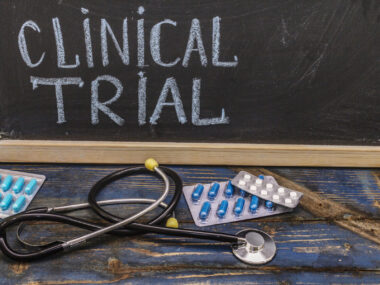Research Collaboration to Study COVID-19 Vaccine Dosing, Timing
The 2-year study will help determine how safe vaccines are for MS patients
Written by |
The Accelerated Cure Project (ACP) for multiple sclerosis (MS) is teaming up with Quest Diagnostics to study how MS patients respond to COVID-19 vaccines.
“Understanding the immune response to the COVID-19 vaccine doses in a longer-term study in people with MS will provide tremendous insights into not only optimal vaccine dosing for this population, but it will shed light on how vaccines may affect people with immune disorders or who are taking immunomodulatory therapies,” Bruce Bebo, PhD, the society’s executive vice president of research, said in an ACP press release.
The two-year study, funded by the National MS Society, is part of COVER-MS, a larger project to collect real-world information related to COVID-19 vaccines and learn how safe they are for people with MS.
Just like COVER-MS, the sub-study will draw on iConquerMS, a research network hosted by the ACP. COVER-MS has been active for more than a year and is still enrolling patients.
Its first findings, based on responses from 719 MS patients, showed that reactions to COVID-19 vaccines were similar to those reported in the general population. In addition, certain disease-modifying therapies (DMTs) may make MS patients less likely to have vaccine reactions.
It remains unknown, however, how strong and how lasting an immune response is over the long haul following multiple vaccine doses in patients on different DMTs, which typically work by suppressing the immune system.
Previous research suggested that Gilenya (fingolimod) and B-cell depleting therapies such as Ocrevus (ocrelizumab) may limit COVID-19 vaccine effectiveness compared with other immunosuppressive DMTs.
The effectiveness of these vaccines as variants of SARS-CoV-2 — the virus causing COVID-19 — evolve is also unclear.
The goal of the new study is to determine how the amount of antibodies the body makes against SARS-CoV-2 changes with the number of vaccines and timing in 300 COVER-MS participants.
The findings may help inform guidelines for dosing and timing of COVID-19 vaccines in MS patients taking DMTs.
“We have had a long and productive collaboration with Accelerated Cure Project and its iConquerMS network and we’re looking forward to working with them and with Quest Diagnostics on this important project,” Bebo said.
“As a person with MS who is treated with an immunomodulator that may affect antibody formation, I want to know how well the COVID-19 vaccines promote antibody development and how long they last compared with people who don’t have MS,” Phyllis Klein, PhD, who co-chairs the steering committee of COVER-MS, said. “Knowing this could tell us if we need to change intervals between boosters and perhaps eventually help determine the optimal booster dosing for people with MS.”
Quest Diagnostics will run the lab tests to determine MS patients’ COVID-19 vaccine responses by measuring the blood levels of antibodies against SARS-CoV-2 and T-cells, a type of immune cell involved in fighting infections.
The company also will help collect regular blood samples from people with MS through a decentralized clinical trial model that will make use of its nationwide network of more than 2,100 patient service centers.
“We are thrilled to contribute our expertise in neuroimmunology and COVID-19 to this important research effort focused on yielding insight into the unique COVID-19 disease risks facing patients with MS. Quest’s national network of patient service centers will enable the research team to ease the process of recruiting and retaining participants, surmounting a major challenge of clinical trials and other scientific research,” Michael Racke, MD, medical director of neurology at Quest Diagnostics, said.
“This unique collaboration will provide a proof-of concept for a convenient and economical method to collect samples for use in research,” ACP stated in the release. “This model can be applied to future real-world research studies aiming to enroll a broad cross-section of participants, in terms of geographical location as well as clinical and demographic characteristics.”



